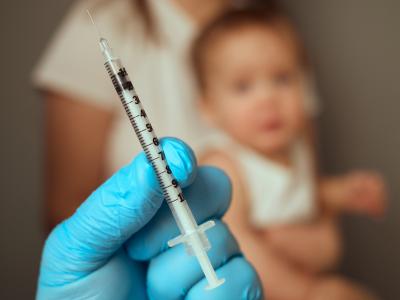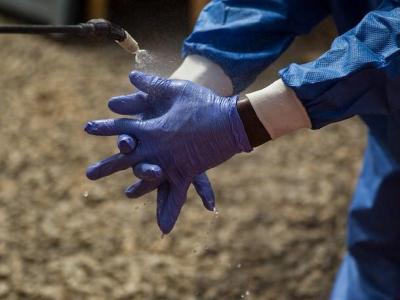An emergency committee set up to advise the World Health Organization (WHO) about steps needed to address MERS-CoV held off again on declaring a global public health emergency but raised major concerns about Saudi Arabia's efforts to control the threat.
Though the group heard from several countries and experts that have grappled with MERS-CoV (Middle East respiratory syndrome coronavirus), it based much of its latest assessment on the initial findings of an Aug 23 WHO mission to Saudi Arabia.
Meanwhile, Saudi Arabia reported four new MERS cases today, two of them in Riyadh where a large hospital outbreak is under way. And the hospital at the center of South Korea's outbreak earlier this year announced new steps today to prevent similar events.
Committee's main findings
In its 10th meeting since the virus was first detected in 2012, the emergency committee yesterday during a teleconference heard from health officials in recently affected countries and experts from the WHO mission that took place less than 2 weeks ago.
There have now been two WHO missions to Saudi Arabia this year. A joint mission to the nation in February in the wake of a surge in MERS-CoV infections identified critical gaps on how and why MERS illnesses keep occurring in the community and in health settings.
In its detailed statement today on emergency committee deliberations and the mission finding, the WHO pointed to hospital-related risk factors that have been seen in other countries such as South Korea. For example, experts said virus transmission in Korean emergency departments (EDs) fueled significant nosocomial spread, as did overcrowded conditions, movements of patients who hadn't yet been diagnosed as having MERS, and breakdowns in infection prevention and control protocols.
Though the committee didn't find the developments to rise to the level of a public health emergency of international concern, members said recent developments have heightened their concerns, especially continuing camel-to-human transmission and a global lack of awareness of the threat that leads to unrecognized infections that keep fueling hospital outbreaks.
Governments and health facilities, despite their efforts, still fall well short of controlling the virus, which puts the world at risk, the group found. They raised worries about a large outbreak in Saudi Arabia occurring just weeks before the start of the Hajj season, and that many pilgrims will return to countries that have weak surveillance and health systems.
"The recent outbreak in the Republic of Korea demonstrated that when the MERS virus appears in a new setting, there is great potential for widespread transmission and severe disruption to the health system and to society," the committee said.
Sharp criticism of governments
The emergency committee aired its disappointment that Saudi officials haven't followed all of its recommendations. It noted, for instance, that asymptomatic cases aren't routinely reported as required. In its daily MERS-CoV update and cumulative case counts, the country seems to include only symptomatic cases.
Health officials have hinted on Twitter that people with asymptomatic infections are placed in home isolation. The daily updates, though, note only how many people are in isolation, with no cumulative total of asymptomatic cases listed.
Timely information sharing hasn't been forthcoming from affected countries on research studies and virologic surveillance, and little progress has been made in clarifying how the virus spreads from camels to people, between people, and in different settings, the panel noted. It added that it was disappointed by the lack of information from the animal sector.
Committee members recommended that national health officials make sure health facilities have the capacity to implement and maintain infection control practices and the ability to identify MERS-CoV cases early. They also urged authorities to collaborate on addressing the deeper issues—both human and animal—that are feeding the outbreaks.
Public health efforts need participation from agricultural and animal sectors to address the transmission of the virus from camels to people, and stepped-up efforts are needed to develop vaccines and drugs for people and animals, according to the group.
Key role for camel vaccine
Michael T. Osterholm, PhD, MPH, director of the University of Minnesota's Center for Infectious Disease Research and Policy, which publishes CIDRAP News, said he was struck by the stern tone of the emergency committee's statement. And he questions Saudi Arabia's commitment to following the group's recommendations, which is part of the country's obligations under International Health Regulations.
After reviewing the committee's concerns, Osterholm said the crucial task in reducing the global threat is to shut down MERS-CoV transmission between camels and humans. He pointed out that global health officials successfully curbed the SARS outbreak by taking a similar step.
"With SARS, we were able to stop the ongoing faucet of virus from the animal source—badger dogs and civet cats—by eliminating it from the markets of Guangdong province," he said. Then countries were able to address the transmission that remained in the communities and hospitals.
"With ongoing MERS-CoV transmission from camels to humans the faucet is never shut off," Osterholm said, adding that the threat will never be curbed by addressing human transmission exclusively.
"As long as the infectious disease fire of MERS-CoV keeps burning like it is on the Arabian peninsula, sparks are going to fly outside of the peninsula and land anywhere in the world. Expect more Samsung Medical Center episodes in both developing and developed world countries," he warned.
Osterholm said an effective MERS-CoV vaccine is needed to prevent clinical disease and shedding in camels. And though infection control and case management improvements are needed, he said the world's response to the disease still faces severe challenges if animal-to-human transmission isn't eliminated.
Two new Riyadh cases
Saudi Arabia's Ministry of Health (MOH) today reported four more MERS-CoV cases, two of them in Riyadh and likely linked to the large hospital outbreak at King Abdulaziz Medical City.
Both Riyadh patients are foreign healthcare workers who had contact with a confirmed or suspected case in the community or hospital setting. The two women, ages 44 and 29, are listed in stable condition.
The other new cases involve a 36-year-old Saudi woman in Al-Kharj, southeast of Riyadh, who is hospitalized in critical condition, and a 46-year-old Saudi man in Najran who is listed as stable. The man had contact with a suspected or confirmed case and may be part of a recent cluster of MERS-CoV cases in the city, located in the southern part of the country.
It's not known how many cases are linked to Riyadh's hospital outbreak, but the MOH has reported nearly 140 cases in the city since Jul 21.
Health officials also reported two more deaths among earlier reported cases, men ages 64 and 68 in Riyadh. Both had underlying medical conditions.
According to the MOH, 61 people are still being treated for their infections, and 12 more are in home isolation. One more patient has recovered from MERS-CoV, a foreign woman who was diagnosed in Riyadh, raising the overall total of recoveries to 614.
Today's developments lift Saudi Arabia's overall total from the disease to 1,199 infections and 512 deaths.
New steps at Korean hospital
Samsung Medical Center, the Seoul hospital that accounted for many of the cases in South Korea's recent MERS outbreak, yesterday unveiled a series of actions aimed at preventing similar outbreaks in the future.
The hospital's president said the facility will invest $85 million toward vaccine development and reforms for the facility's emergency systems and infrastructure, JoongAng Daily, an English-language newspaper based in Seoul, reported today. South Korea's International Vaccine Institute will earmark how to spend some of the funds, and the money for the reforms will also be spent on expanding and remodeling the hospital's ED, which was linked to many of the facility's 91 MERS-CoV infections.
The hospital also said it would reduce overcrowding in the ED by streamlining procedures so that patients are initially treated within 30 minutes and admitted or discharged within 6 hours.
Samsung's announcement comes 2 days after the health ministry released its own set of reforms, some of which also target ED overcrowding, as well as multiple hospital visits and in-patient care provided by visitors.
See also:
Sep 3 WHO emergency committee statement
Sep 3 Saudi MOH statement
Sep 3 JoongAng Daily story



















